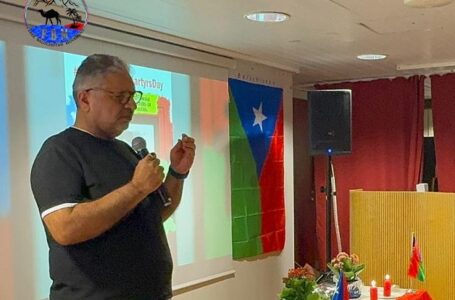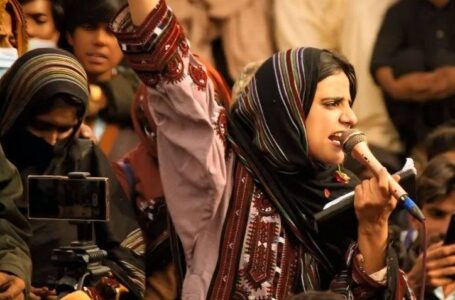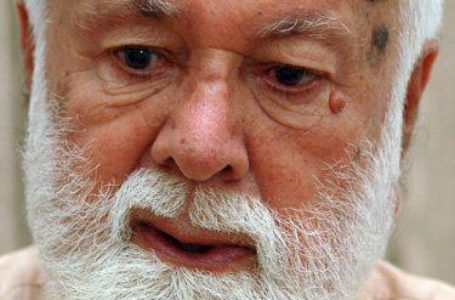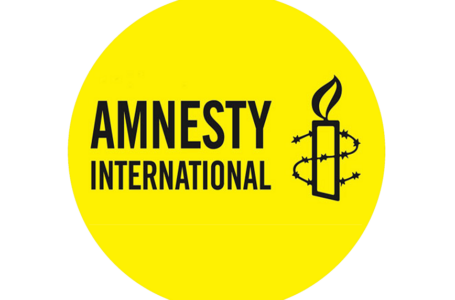Occupied Balochistan: A Chronicle of Genocide, Exploitation, and Resistance
‘Unsilencing Balochistan’

By Desmond Fernandes
Just over 4 years ago, “on the evening of April 24, one of Karachi’s most prominent social activists, Sabeen Mahmud, was shot dead after leaving an event called ‘Unsilencing Balochistan’ [Take 2], that her organization, The Second Floor, had arranged”. This event had been organised “after a previous roundtable on the same topic, … scheduled to include [Mama] Qadeer and [Farzana] Majeed as panellists, was cancelled at a leading private university, the Lahore University of Management Sciences (LUMS). Faculty there said they had to cancel the talk because of threats received from Pakistan’s top spy agency, the Inter-Services Intelligence [ISI]”. The Chair of the Humanities and Social Sciences Department had notified students, staff and faculty at LUMS that the event had been cancelled “on the orders of the government”.
The event had “featured [the aforementioned panellists], two of Pakistan’s most vilified human rights activists”, the Chair and General Secretary of Voice for Missing Baloch Persons, “who have worked to raise awareness about the south-western province Balochistan’s ‘missing people’”.
“Mahmud knew she was taking a risk by holding the event and discussed the possibility of ‘blowback’ with a friend … But she wrote to another friend, ‘I just want to leave everything and join the Baloch march for the rights of their missing’”.
At that time, as the Voice for Missing Baloch Persons had estimated, “around 21,000 people ha[d] gone missing in Balochistan”, with 6,000 mutilated bodies found. Two months after Sabeen Mahmud’s murder, Pakistan’s army continued “to enforce a blockade of the towns of Kolowah, Malaar, Geshkor, Zeek & Machi. No one, including town residents and district officials of the Pakistan-backed provincial government”, were “allowed access to the targeted towns. A district official, on condition of anonymity, said they were denied access to the affected areas by Pakistan Army and Frontier Corp units and were told that operations” were “still underway. District officials said the towns ha[d] been subjected to intensified bombing by the Pakistan Air Force”.
Noam Chomsky, David Barsamian, Tariq Ali and others, just a year prior to Sabeen Mahmud’s target killing, had voiced the following concern in an Open Letter:
On March 18th 2014 around 5:00 pm in Quetta, Zahid Baloch, chairperson of [the] Baloch Student Organization – Azad (BSO-A), was abducted at gunpoint. Banuk Karima, the vice-chairperson of BSO-A, witnessed the abduction. She notes, ‘Pakistan’s secret agencies and security forces abducted Zahid Baloch, I along with three other members of BSO-A witnessed the abduction’ …
According to Voice Of Baloch Missing Persons (VBMP) – an independent advocacy group run by the families of those who are missing – more than 19,000 Baloch persons are missing. Other organisations put the figure in the range of 600 to 5000. Most human rights organizations and activists accuse Pakistani secret agencies and military forces for these abductions. This fact was acknowledged by the Pakistan Supreme Court. Not only are Baloch systematically being disappeared. They are also being tortured and murdered…
Baloch activists claim that Balochistan was annexed by Pakistan on 27th March 1948 by the Pakistani army on the orders of Muhammad Ali Jinnah. The Baloch, since this date, have variously demanded either increased provincial autonomy in a confederal political system or independence. The Pakistani state has heeded neither demand. Instead, by both civilian-led governments and military dictatorship, the Baloch have been answered by bullets.
Besides the abductions, torture and murder of Baloch activists, the state has carried out major military operations in Balochistan, often in civilian areas. Alarmingly, military forces have also started raiding and destroying educational institutions. In the past four months, study centres and schools have been raided with students and teachers among those who have been abducted. Shockingly, bookshops have been raided and bookshop owners arrested. Life for students in Balochistan has become unbearable…
We … call on the Government of Pakistan to stop all military operations in Balochistan, to stop raids on educational institutions, to stop raids on bookshops, and to stop forced abductions of Baloch activists. We further call for the immediate release of Zahid Baloch and all others held by Pakistani security forces. We call on intellectuals and activists to take note of these atrocities being committed in Balochistan for which we hold the Pakistani state responsible and complicit. We appeal to all readers to raise the issue of the atrocities against the Baloch at all political and social forums.
Five years on from this assessment, the ongoing process of destruction, military operations in Balochistan, raids on educational institutions, raids on bookshops, forced abductions of Baloch activists, women, children and students and “kill and dump” targeting of the Baloch still fits the pattern of colonial genocide identified by Raphael Lemkin (who coined the term genocide) and other scholars, human rights activists and political commentators. I have already extensively documented the genocidal and politicidal context of such targeting at length in two books. For Adana Usmani, “the conflict today resembles the dynamics characteristic of any protracted clash with an occupying authority”.
It is notable that Imran Khan, when leading his party in opposition, as PTI (Pakistan Tehreek-e-Insaf) chairman in February 2016, had promised that he would act differently with regard to Balochistan if he came to power, as he understood the full scale of injustice and “the crimes against humanity” faced by the Baloch. He said, for example, and as quoted from the Pakistan Tribune newspaper, he would “fight for the rights of Balochistan, claiming he did not have an idea how rights of smaller provinces were suppressed until his party formed government in Khyber-Pakhtunkhwa [KP] … Imran assured the people of Balochistan that his party will never use force against them. [Quote]: ‘I will never start a military operation in your province but will respect your right to protest’ [end quote], he said, claiming that he understood why Balochis were struggling for their rights”.
In a speech uploaded on 26 January that same year (accessed at: ), he is heard passionately stating before an audience:
I, in 1971, when [the] Pakistani army took action in East Pakistan, I was the one who was standing with the Pakistani army, praising the soldiers, ‘they’re doing this’ and ‘great job’, and its only ‘foreigners’, ‘terrorists’ and ‘militants’ [who are being targeted]. It was three years later that we realised that the army butchered civilians – women and children. And so we’re doing exactly the same thing in Balochistan. They are bombing people. How can you bomb people? Is this an army you’re bombing? There are women and children there. But for us, it’s very important to understand how we’re just bombing our own people. Just think of the immorality of bombing villages, where there are women and children.
No one talks about, yeah … about the 6 million people [also] in the tribal area that are being bombed. Their economy has been destroyed. They are living in refugee camps. There are about 2 million internally displaced people in Pakistan. How are they surviving? All under the heading of ‘the Taliban’.
And the extra-judicial killing that is going on. How many times have you heard [about] ‘so many militants killed’. Is there any [independent] verification? Has there been any [independent] identification? Who are these people that have died?
So, this is a crime against humanity, what is going on …
Since Imran Khan became Prime Minister, of course, the army has continued to do the very same things – i.e. extra-judicial killings, abductions, disappearances, the ‘bombing’ of ‘villages, where there are women and children’ – that it was doing in 2016 when he had clearly labelled such concerns ‘a crime against humanity’. Prime Minister Imran Khan needs to ask himself the same questions that he had posed to the prime minister of the time in 2016: “How can you bomb people [in Balochistan?] … There are women and children there … Just think of the immorality of bombing villages, where there are women and children … And the extra-judicial killing that is going on. How many times have you heard [about] ‘so many militants killed’. Is there any [independent] verification? Has there been any [independent] identification? Who are these people that have died?”.
Balochwarna News and other outlets and organisations continue to document, on a weekly basis, the women and children, elders, students and others who continue to be abducted, tortured and ‘disappeared’ by Pakistan’s army of occupation and linked forces. Just think of that immorality and lack of accountability of the same government that warns India about its military occupation and shameful human rights record in Kashmir. Just two months ago, in June, the Human Rights Council of Balochistan (Hakkpaan) reported that:
In completely under-the-blanket operations, the mighty military of Pakistan has militarized the entire Balochistan, its north-western, most mineral-rich but least developed region with lowest human development. [The] military suppressed the rights movements that blame the military and the central government for their backwardness…
Balochistan seemed a war-zone during the month of May 2019 as well. We have received hundreds of reports of human rights violations [which confirmed that in May 2019 alone], … seventy persons were picked up by [the] military and forcibly disappeared. Eight of them were released later, while [the] whereabouts of 62 civilians remain unknown … Decomposed bodies of five persons were found dumped. All were beyond recognition … Silence over Balochistan has shaped [the] military’s attitude towards any rights movement all over Pakistan.
[The] military repeated [the] same in Waziristan, KPK region on 26 May 2019. It attacked a peaceful rally, killing more than a dozen and wounding more than forty-five. [The] rally was organized by [the PTM] Pashtun Tahaffuz Movement, a rights group developed in Pakistan’s KPK region. [The] leadership of the group – legislators the local people elected – were said to be the aim of the attack. One of the legislators, Ali Wazir went missing for a few days, after [the] military arrested him from the attacked protest, while the other, Mohsin Dawar was declared a wanted man. He finally surrendered himself to a court of law … [The] military, it seems, wishes to control the minds of each individual and does not [wish to] allow any space for the voices of people.
The Human Rights Council of Balochistan’s May 2019 update confirmed by name that Baloch children and university students were identified amongst the ‘disappeared’. The HRCB’s report entitled 2019 Balochistan: The State of Human Rights further confirmed from its sources that in “March 2019, sixty people were forcibly disappeared by security forces, fifteen were shot dead and seventeen unidentified bodies were recovered. The abductions include[d] women and children, particularly those who are related to campaigners and political workers. These people are often taken from their homes by the military and kept in isolation for weeks, sometimes even months. They are then moved to illegal detention centres, run that by death squads, but supervised and sponsored by the military”.
Investigative journalist Julia Micevska earlier this month, having highlighted the HRCB’s findings and arrived at the determination that Pakistan’s military “continues its ‘Kill and Dump Policy’ in Balochistan”, further concluded (and in this, she joins a large number of human rights analysts who have arrived at similar conclusions) that the construction of the Gwadar deep sea port and road infrastructure which forms “part of the planned China-Pakistan Economic Corridor (CPEC), has [additionally] resulted in untold human rights abuses that the Baloch people liken to ‘ethnic cleaning’.
“The Pakistani military has used a heavy hand to seize the resources of Baluchistan”, she reports, “especially its oil, gas and rare earth metals. Additionally, the Pakistan military regularly carries out strategic military exercises in the region, including nuclear testing and storage. Villages that block any proposed route are burnt to ashes and the people forcefully removed. It is generally believed that the military of Pakistan is beyond accountability, and cannot be controlled by any civilian institution, including the Pakistan Parliament and judiciary”.
Investigative journalists, for their part, in Balochistan, Pakistan and overseas – who cover Pakistan state-inspired terror and atrocities in Balochistan – continue to be targeted. As Shah Meer Baloch reported in November 2017 (and the situation has not improved since then): “Balochistan is the most hazardous province for journalists. According to Khalil Ahmed, president of the Balochistan Union of Journalists, 43 journalists have been killed in Balochistan, including by bomb blasts and targeted killings. Twenty-five journalists have lost their lives in targeted killings while reporting in the conflict zones in Balochistan, Ahmed said”.
Many others live under the constant fear, in Balochistan, Pakistan and internationally, of being targeted by state-inspired death-squads. In this regard, we must not forget those who have sought, despite these threats, to expose genocidal realities whilst celebrating Baloch culture and resistance towards a genocidal regime. We must not forget Dr Arif Barakzai, a member of the BSO (Baloch Student Organisation) and a lecturer at Uppsala University in Sweden who was murdered after ‘accidentally falling’ 11 floors from the balcony of his apartment in 2008. He ran the website, The Baloch Artist, dedicated to Baloch culture.
The European Commission and governments which claim to be inspired by the refrain ‘Never again!’, meanwhile, need to be publicly held to account for pursuing their own cynical geopolitical and ‘deep political’ agendas that enable these horrors against the Baloch to continue. As an Unrepresented Nations and Peoples Organization (UNPO) report entitled “Land of Forsaken Voices: The Geopolitics of Justice, Impunity and Human Rights in Balochistan” noted in 2016: “Pakistan’s partners in the West pay mere lip service to changing the horrendous status quo. Their half-hearted approach oscillates between public allegiance to international human rights norms and realpolitik based on considerations of power and economic interests”.
About the Author: Desmond Fernandes is a genocide scholar and founding member of Peace in Kurdistan (since 1994) and the Campaign Against Criminalising Communities. Formerly a Senior Lecturer in Human Geography at De Montfort University, his works on refugee rights, ‘deep politics’, genocide and the criminalisation of communities have been translated into a number of languages. He is the author of Call it by its name: ‘Persecution!’ (BPCA: London, 2019); The Kurdish and Armenian Genocides: From Censorship and Denial to Recognition? (Apec: Stockholm, 2007); The Armenian, Assyrian, Greek, Kurdish and Greek Cypriot Genocides and the Politics of Denialism; Modernity, ‘Modernisation’ and the Genocide of Kurds and ‘Others’ in Turkey; Education, Human Rights Violations in Pakistan and the Scandal involving UNHCR and Christian asylum seekers in Thailand (BPCA: London, 2016, 3rd edition) as well as co-author of The Targeting of Minority ‘Others’ in Pakistan (BPCA: London, 2013) and The Education System in Pakistan: Discrimination and the Targeting of the ‘Other’ (BPCA: London, 2014). Two new books will shortly be released: The Persecution of Christians in Sri Lanka (BACA: London, 2019) and Unsilencing Balochistan (Take 3) and Other Essays on the Genocide of the Baloch.









